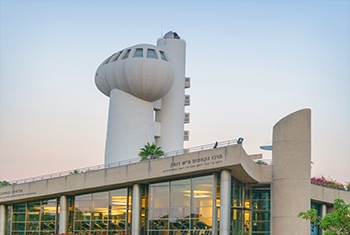The Morris Kahn Institute for Human Immunology is dedicated to understanding acquired immunity, i.e. how the immune system protects the body from invading pathogens.
The Institute is an effort to expand scientific research in immunology, a field which is receiving increasing attention for its potential to advance our understanding of a vast array of diseases and disorders, while contributing to the development of new vaccines.
The research program is led by Dr. Ziv Shulman of the Department of Immunology, who is investigating the molecular interaction of the antibody-producing cells in the body’s lymph nodes. Forming efficient antibiodies against specific pathogens involves a biological process called “affinity maturation” in which random mutations are introduced into B-cell antibody genes. Dr. Shulman studies how T and B cells interact with one another during a critical period following infection in order to prepare the best antibodies and establish long-lasting protection. In order to analyze and characterize the dynamics of this process, Dr. Shulman developed a system for direct visualization and quantification of the antibody selection process in living mice. The system employs two-photon laser scanning microscopy together with high throughput computerized analysis.
These studies may pave the way for new vaccines and immunotherapies for a wide range of diseases, including forms of cancer.


